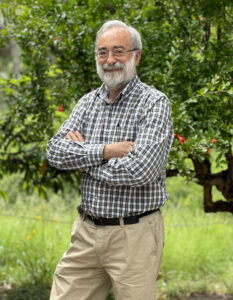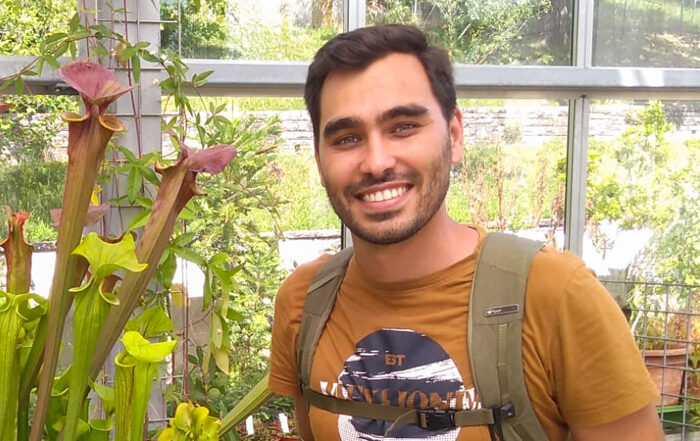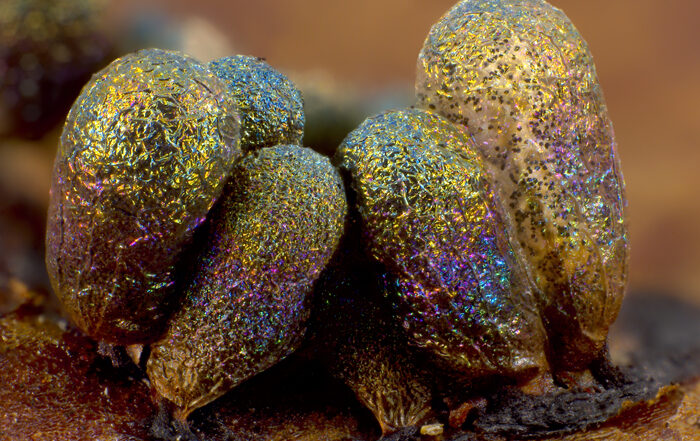
June 27, 2023: When Dr. Carlos Lado began working at the Real Jardín Botánico as a researcher in 1986, he had no idea that he had just begun what would become a very long (and productive) love story for myxomycetes.
In 2003, Dr. Lado founded the Myxotropic Project, which has allowed the identification and description of numerous species of myxomycetes (lately, also arcellinids) from the Neotropics. His many collection trips to this area, but also through Europe and tropical Africa, have provided unprecedented insights into their taxonomy, distribution and ecological role. Moreover, Dr. Lado has been in charge of maintaining and updating the most comprehensive database on Myxomycetes nomenclature, and has supervised dozens of students.
Now, he has just officially retired from his job, so we hope that he finds some time to chill out and devote to his family. However, we known that Carlos has so much energy for things he is passionate about (myxomycetes, researching, traveling…), and we are sure that he still has many plans and ideas for the Myxomytropic Project.
We all will miss you, Carlos, but we can only say CONGRATULATIONS!!!!!
Thank you for steering the ship so well for so many years. Enjoy your well-deserved retirement.
More News
Welcome into the Myxotropic Lab, Daniel!
November 10, 2022: Daniel Rodrigues Nunes is a Ph.D student from the Conservatoire et Jardin Botaniques of Geneva, CJBG (Switzerland). [...]
Myxos and “Naturaleza Encendida”, a perfect autumn plan!
September 23, 2022: The astonishing spectacle of light and sound “Naturaleza Encendida”, this year entitled “Origen”, comes back to [...]
A great article on the phylogeny of the order Trichiales got published.
September 19, 2022: We are very glad to announce that the article “Phylogeny and evolution of morphological structures in [...]
Diachea mitchellii, a rainbow-like species entering the list of Physarales discovered in the Neotropical Region.
June 17, 2022: Expeditions to high-altitudes of the Tropical Andes of Peru have allowed us to discover a new species [...]




